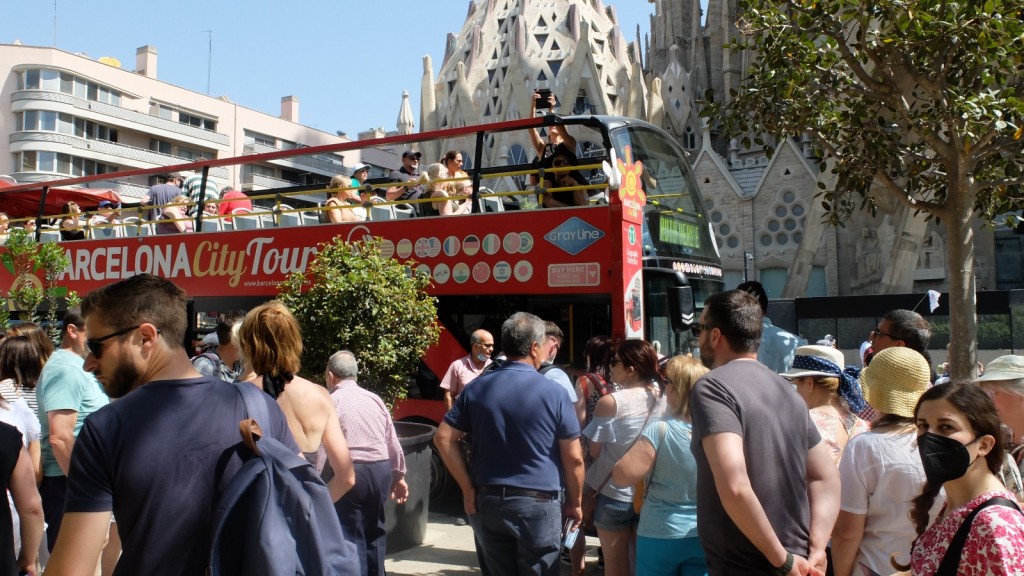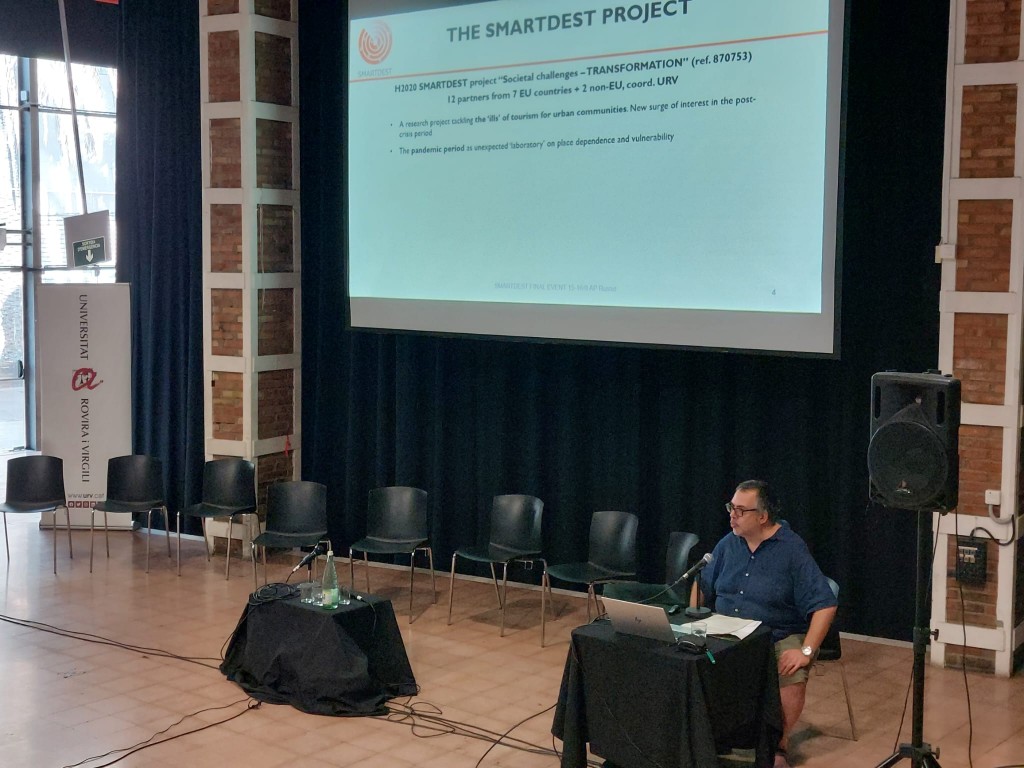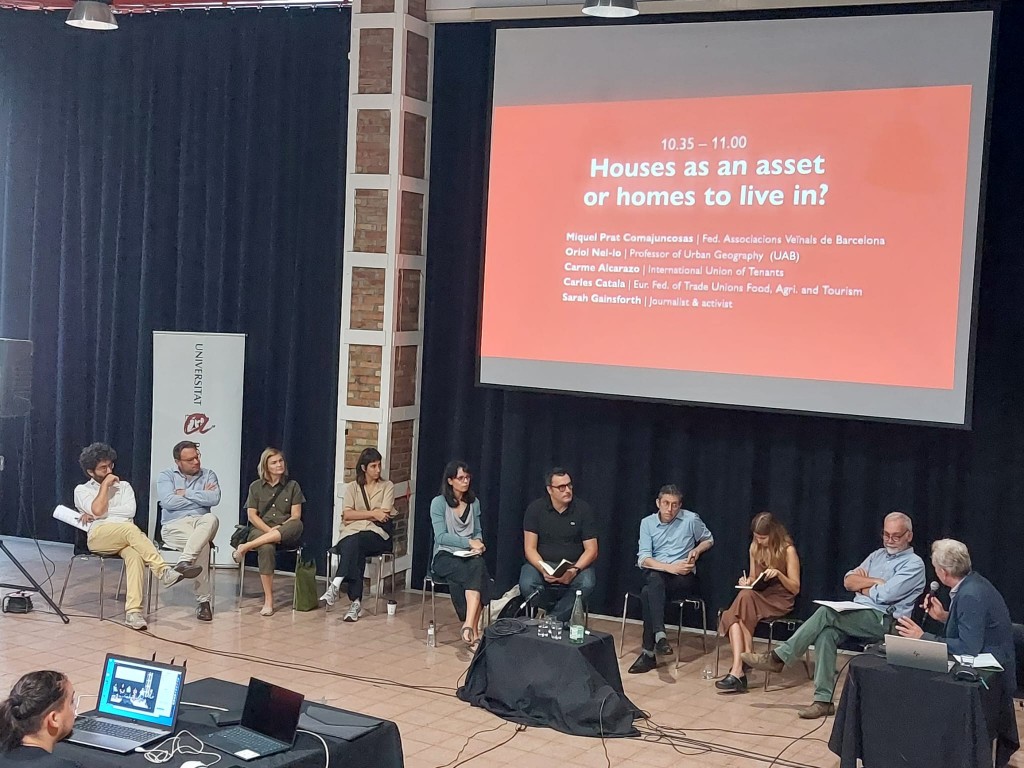16/09/2023
Mass tourism damages the social cohesion of cities, increases inequalities and makes jobs more precarious
A study coordinated by the URV reveals the social exclusion associated with the tourism-driven transformation of eight European cities, including Barcelona

A study coordinated by the URV reveals the social exclusion associated with the tourism-driven transformation of eight European cities, including Barcelona
An extensive international study coordinated by the Universitat Rovira i Virgili has concluded that the tourism-driven transformation of cities increases the risks of social exclusion. The SMARTDEST project, led by the Research Group on Territorial Analysis and Tourism Studies of the URV’s Department of Geography and with the participation of twelve institutions from seven European countries, has detected that tourism exacerbates inequalities, increases polarization and housing exclusion, leads to inefficient mobility and, ultimately, harms social cohesion and integration.
The study was carried out over four years in the cities of Barcelona, Amsterdam, Venice, Lisbon, Jerusalem, Turin, Edinburgh and Ljubljana. It has focused on the analysis of the forms of social exclusion associated with the tourism-driven transformation of these eight European cities. They have looked for the causes, the mechanisms, the subjects and the consequences of problems such as the growth of housing and job insecurity in the tourist city; the transformation of living environments, shops and public services; conflicts surrounding the use of public space and urban mobility; the growth of large-scale accessibility infrastructures and systems of governance and representation of citizens in decision-making on the growth of tourism.

Bearing in mind that the project began just before the pandemic, the research team has also shown that the “immobilization of city tourism has revealed patterns of vulnerability resulting from the extreme dependence on tourism”. In this regard, new social gulfs were opened up, in addition to those already existing and becoming increasingly wider during the return to normality.
“Although the destinations enjoy opportunities for development and prosperity, the tourism economy can drive redistribution and inequality, and have a considerable impact on the social composition of the places themselves,” says Antonio Paolo Russo, a professor at the URV and the coordinator of the SMARDEST project.
For example, the growth of short-term tourist rentals is proving to be a driver of social polarization and exclusion, and housing instability in all European urban areas. In the case of Barcelona, it has been shown that the increasing use of housing for tourists places considerable strain on the housing conditions of the most vulnerable groups, especially young people, immigrants and women with children.

Likewise, employment in the tourism sector is more precarious than in any other sector of the economy, and its workers are the ones least able to improve their living conditions in the city. “In Barcelona, those workers who have stayed in this sector after the 2008-2014 crisis are the ones who are most likely to have had to move outside the city, with the corresponding impact on their lives in terms of work-life balance, health, social relationships, etc.”, say the leaders of the study. In Edinburgh, the workers at the largest festival in Europe, who have strictly seasonal contracts, are in a similar situation.
Inefficient mobility
In addition, the overwhelming specialization in tourism of historical cities is generating inefficient and socially exclusionary mobility patterns. In the case of Venice, while workers in the low-cost tourist economy have to make long journeys from the periphery, where they are forced to live, residents who can afford to still live in the city centre are forced to commute in the opposite direction, as high-value-added jobs now have almost no place in the historic city centre. Similar patterns are beginning to be observed in many other European cities.
In districts with the highest tourist demand, the transformation of local commerce and the daily rhythms of consumption typical of tourist demand and the cosmopolitan populations that tend to reside there are also factors that marginalize and eventually displace the autochthonous populations. In Ciutat Vella (Barcelona), Miséricordia (Lisbon) and the historic centres of Amsterdam and Venice, former residents lose access to affordable consumer goods, essential services, social networks of solidarity and quality public space.
The study also focuses on student populations, who experience these processes of transformation not only as agents, since they are a mobile cosmopolitan social group, predisposed to liven up the nights of university towns and generating conflicts about the use of public space, but also as victims of the increasing use of housing by tourists and the increasing cost of living. In Turin, for example, attempts to reorganize student life on campuses on the urban periphery have clashed with the working-class nature of the areas and generated new conflicts.
In short, according to the authors of the study, the homogeneous, standardized tourist development of the historical areas of cities does not favour social integration, either among small entrepreneurs in the creative economy of Ljubljana, young immigrants from the outskirts of Amsterdam, or culturally segregated groups in Jerusalem.
The study has received funding from the H2020 programme, the research and innovation framework instrument of the European Union. After four years of analysis, the results of the project were presented last Friday and Saturday in two sessions in Barcelona: the first, a scientific seminar entitled “Social inclusion and exclusion in the age of mobilities: urban cohesion in danger” and the second (“Local communities and urban policy under the exclusionary pressure of tourism-driven transformations”) was open to the public at the Cotxeres de Sants and served to transfer the ideas of the project to the communities affected, disclose the results and open up channels of dialogue and commitment with social and political entities at both the European and local level.
